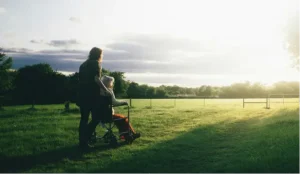Every year, millions of Americans make the exciting transition to retirement. Preparing for this milestone often means reviewing cash flow, adjusting lifestyle expectations, refining investment strategies, and putting thoughtful tax strategy and estate plans in place. While many spend years planning for the financial impact of retirement, few stop to consider how retirement can affect their brain and body.
A study published in The Journal of Health Economics followed 8,000 retirees across Europe to explore the link between retirement and cognitive health.[1] The findings were striking: retirement was associated with a faster pace of cognitive decline. Verbal memory, or the ability to recall a set of words after a certain amount of time, showed the sharpest decline. Research suggests that the shift from a stimulating work environment to a lifestyle with fewer structured activities may play a role. Daily work routines often provide mental challenges, social interaction, and problem-solving opportunities that keep the brain engaged. Without those regular cognitive demands, mental sharpness can wane more quickly.
The good news? Research also shows that the brain has the ability to bounce back after periods of inactivity.
One powerful way to protect cognitive health is through regular physical activity. The Physical Activity Community Guidelines Committee reports that exercise not only improves brain function but also reduces the risk of decline.[2] Activities like walking, swimming, or dancing can sharpen the mind while also boosting mood.
Equally important is staying socially engaged. Nearly 29% of retirees experience depression. Volunteering, joining social groups, or simply staying connected with friends and family can provide meaningful ways to counteract loneliness and support mental well-being.[3]
Retirement marks the beginning of a new chapter. Hopefully one that offers more travel, adventures, and joyful memories. By pairing financial preparation with intentional choices to stay active, engaged, and socially connected, retirees can protect both their minds and their bodies. With the right habits, this stage of life can be defined by new opportunities, growth, and fulfillment.
[1] https://www.sciencedirect.com/science/article/pii/S0167629617308299
[2] https://odphp.health.gov/sites/default/files/2019-09/PAG_Advisory_Committee_Report.pdf
[3] https://pmc.ncbi.nlm.nih.gov/articles/PMC7551681/#sec5-healthcare-08-00321






